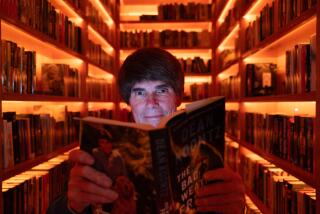DECONSTRUCTING DECONSTRUCTION
- Share via
As Mark C. Taylor points out in “Ironies of Deconstruction,” since the exposure of the Nazi collaborationist writings of the late Yale deconstructionist, Paul de Man, deconstruction has received a great deal of attention in the popular media; articles of every stamp, sympathetic as well as hostile, have appeared in every leading magazine and newspaper in the country.
But so far, no one in the journalistic media has described deconstruction accurately. Taylor is no exception; he claims that deconstruction locates an “unavoidable duplicity” in “literary texts,” a duplicity that inevitably “renders their meaning unstable or undecidable.”
In fact, nearly the opposite is true. To be sure, Jacques Derrida, the “father” of deconstruction, insists that the conditions governing the deployment of signs--the context, for instance, of a sentence--can always be altered, giving rise to new meaning; and this has led many to misconstrue deconstruction as a kind of nihilism according to which “anything can mean anything.” But anyone who carefully peruses Derrida’s work will discover that he is not finally concerned with meaninglessness or undecidability; on the contrary, he investigates the very linguistic principles and rules by which meanings are generated, mobilized, and put to use.
BARNABY FINCH
ALTADENA
More to Read
Sign up for our Book Club newsletter
Get the latest news, events and more from the Los Angeles Times Book Club, and help us get L.A. reading and talking.
You may occasionally receive promotional content from the Los Angeles Times.






